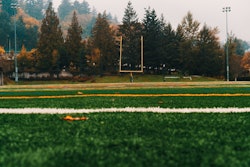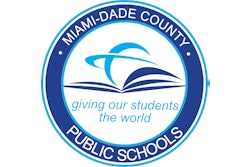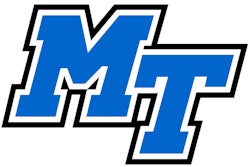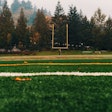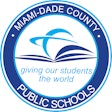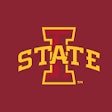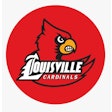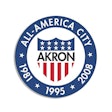Copyright 2014 Times-World, LLC
All Rights Reserved
The lease deal between Roanoke and a private soccer club that will develop playing fields on the old Countryside golf course is the first partnership of its kind to develop athletic facilities in the city.
It's part of a growing national trend as cash-strapped local governments struggle to fund those kinds of community amenities on their own. If they have land, governments can trade on that to get private entities to develop it in return for some amount of community access.
The Roanoke Valley Youth Soccer Club's plan to build six fields on two separate parcels represents the largest development on the site the city bought in 2005 for $4.1 million.
City leaders believe the soccer complex, located near airport area hotels and Valley View Mall, could be an economic engine.
Danny Beamer, executive director of the soccer club, said the club expects to annually host six game days - during which a visiting club brings numerous teams in various age groups - and two major tournaments.
The club's last tournament generated more than $800,000 in spending, according to an analysis Beamer provided.
Tax revenue from that spending, via lodging, meals and sales taxes, would provide the first significant return on the city's investment in the Countryside property. Besides the purchase price, the city has spent $1.5 million to develop a park with a playground and greenway trails on the site. Those figures don't include interest on the bonds used to buy the property and other upkeep costs.
"We knew that recreation would be the driver for the development," said Roanoke City Manager Chris Morrill.
RVYSC, which fields travel soccer teams under the Roanoke Star banner, will pay about $1 million to develop six grass fields within two years as part of the 10-year lease. The club will pay $100 a month. If they convert one field to artificial turf and add lights to three fields on the southern end of the development, they can expand their lease to 40 years.
The city's only skin in the game is the 22 acres of land. In return, the city will get use of the fields during September and October for parks and recreation sports. The city is also working on a deal to sell the tennis building there to the Roanoke's Northwest youth sports booster club, which will expand it for indoor sports.
The deal with RVYSC - approved Tuesday by the council - was nearly three years in the making, Beamer said, and was triggered by the impending expiration of a similar arrangement the club has with Roanoke County.
Nearly 20 years ago, the club leased the undeveloped Vineyard II park near Vinton and spent about $300,000 building five fields in a flood plain there in return for exclusive use of it.
RVYSC's lease on the land expires at the end of this year, and the county has chosen not to renew it.
Beamer said that while having the park to itself was nice for the club, maintaining the fields with flooding and irrigation system problems wasn't cheap or easy.
It was also a source of contention for other sports teams and county residents that they were locked out of using county land.
"We all learned something from that," Morrill said.
Morrill said RVYSC's proposal was attractive because of the natural connections to the hotels and retail nearby. But that wasn't all the city wanted. As Beamer and RVYSC negotiated with the city for the Countryside deal, community access was often discussed.
"They were pretty adamant about that," Beamer said. But opening the fields to rec soccer helps the club ultimately by creating players who might join a Roanoke Star team, he added.
Roanoke County apparently learned its lesson from that original deal with RVYSC, too. The county has a similar arrangement with Roanoke Catholic School at Vineyard I. The school developed the fields, but they're available for county sports on weekends and every weekday after 6 p.m., according to Roanoke County Parks and Recreation Director Doug Blount.
One thing the city did not want from RVYSC was a lot of asphalt parking lots.
"We don't want to see a lot of new pavement created that will go unused most of the time," said Roanoke Planning Director Chris Chittum.
The plan includes three parking lots, but only enough for regular use, Chittum said. For larger events, the city identified 300 on-street spaces nearby that are not in front of houses. RVYSC is also considering running shuttles from the parking lot at nearby William Fleming High school and even from hotels.
Still, it's parking and traffic that are giving neighbors of the fields concern.
Many neighbors are retirees who expected to live on a golf course for years to come. They've accepted that's changed, and those interviewed say they like the playground and greenway trails the city built. They don't object to soccer fields out of principle, either.
"Anytime you bring kids into a neighborhood, it makes it more vibrant," said Diane Wingo.
But she and others say that Ranch Road and Lewiston Street, which border the three fields on the northern end of the site, are already busy with traffic that cuts through the neighborhood between Cove Road and Peters Creek Road.
"Can you imagine the amount of traffic that's going to come through when they get the soccer going?" asked Susan Hall, 72, who lives on Ranch Road.
"Soccer fields are great when they're not in a neighborhood as compact as this one, or when you have access to a major street," said Lloyd Long. "Now that I look back at it, I wish they'd put the chicken farm there," he said, referring to a rejected plan to put an urban farm operation on the site.
From the city's perspective, athletic fields are a better use of the land. They take the best land in the site and use it for a community amenity, as opposed to selling it off to a private developer for housing or retail, Morrill said.
RVYSC hopes to build the fields without financing, Beamer said. The club already has raised about $200,000.
The $2 million total build out cost isn't cheap, but, Beamer said, "If we get 40 years, we get a great return on our money."
Increasingly it's becoming the way fields are being developed. RVYSC is building four fields at Botetourt County's Greenfield development under a similar arrangement.
"This is a nationwide trend," said the county's Blount. "This is a sustainable model, and you'll see it more and more."
Neither governments nor the clubs can afford to build fields all on their own, said Steve Simon, president of the Valley AFC club, which has put some of its money into lights, fencing and irrigation at Roanoke County's Merriman Road sports complex, though without a long-term lease on the land.
Simon's club hopes to buy land in Southeast Roanoke to develop its own soccer complex. But they don't have a deal yet because the owners are hoping to sell it for an industrial purpose.
Flat land is at a premium in a mountain town like Roanoke, Beamer, Simon and Blount all noted, and it's wanted for things besides sports fields, even with growing demand for those fields.
"There's going to continue to be a shortage of rectangular fields going into the future," Blount said. \
\
Terms and Conditions Privacy Policy

















